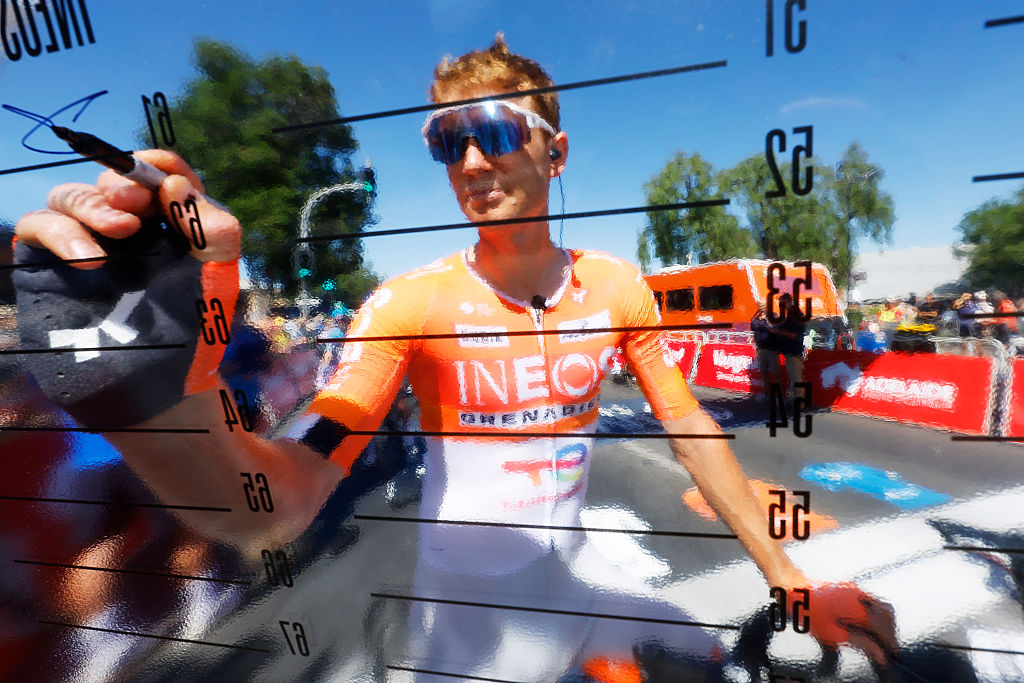Interim Freiburg report released
An interim report of the research conducted into the use of doping products by the T-Mobile cycling...
The latest race content, interviews, features, reviews and expert buying guides, direct to your inbox!
You are now subscribed
Your newsletter sign-up was successful
An interim report of the research conducted into the use of doping products by the T-Mobile cycling team, has confirmed that officials believe that a number of former T-Mobile riders and staff were involved in the malpractices at the University of Freiburg Hospital.
The official inquiry into the doping practices of the T-Mobile cycling team, The Freiburg Report found that between 2001 and 2005, but possibly from as early as 1993, doctors from the hospital were administering doping products to rider from the then T-Mobile cycling team. No names were recorded in the report, but it did state that suspended former T-Mobile rider Patrick Sinkewitz was not alone in his doping practices at the team, according to HLN.be.
The hospital also confirmed that two doctors are involved in the case. Then T-Mobile team doctor, Andreas Blum, and Stefan Vogt. An official complaint has been recorded against the two doctors, both of whom no longer work at the hospital.
Blum worked for the University briefly in 2006, beginning in July and leaving in December, while Vogt started in May 2002 and was fired after his involvement in the case became known. Two other previous team doctors who were associated with the Freiburg University, Andreas Schmid and Lothar Heinrich, made a number of doping practices known in May 2007.
Vogt and Blum said they were not involved with the practices of Schmid and Heinrich. "Vogt and Blum have not confirmed anything," said Hans Joachim Schäfer, chairman of the inquiry into the University of Freiburg's Hospitals. "The committee, however, is presuming that they used money from Telekom for medical care."
According to the report, a package was sent via express to Andreas Klöden's girlfriend in the year 2000. There was no direct indication of what was in the package, but according to Schäfer the parcel contained medication to the value of 1000 Deutschmark.
Klöden, who has always maintained that he has never had anything to do with doping, did admit to receiving a package from the University hospital, but that it contents had nothing to do with doping.
The latest race content, interviews, features, reviews and expert buying guides, direct to your inbox!
"He assured team manager Johan Bruyneel that it contained only vitamins," Team Astana spokesman Philippe Maertens told dpa. "Our hands are tied, until all the facts are laid open. On Tuesday there will be a personal meeting between Klöden and Bruyneel."
Sinkewitz contradicted Klöden's alleged innocence, naming him as the rider with which he visited the hospital the night before the start of the Tour de France. "Andreas and I went to the University of Freiberg where we both received blood doping," he said.
Another former T-Mobile rider, Erik Zabel, also commented on the report. Zabel was open about his doping use as preparation for the 1996 Tour de France, but maintains that this was the only time he ever used the doping products.
"I used 10 units every two days - 13 days before the Tour de France and one week during the Tour," he said. "Then I broke it off."
Zabel had confessed last May to having used EPO, something the interim report reiterated, only in a rather confusing manner. "The report was a bit wrong on this point," Schäfer said. "I can understand that Erik Zabel got upset over it."
"I was a little surprised by all the to-do," Zabel told press agency dpa. "I made the timetable clear in my confession. On Thursday I came back from training and heard that the Freiburg report contradicted me."
Initial news reports interpreted the Commission's statement that Zabel had used EPO during the Tour de Suisse as an additional use of doping and not a continuation of the EPO use, to which he had confessed.

